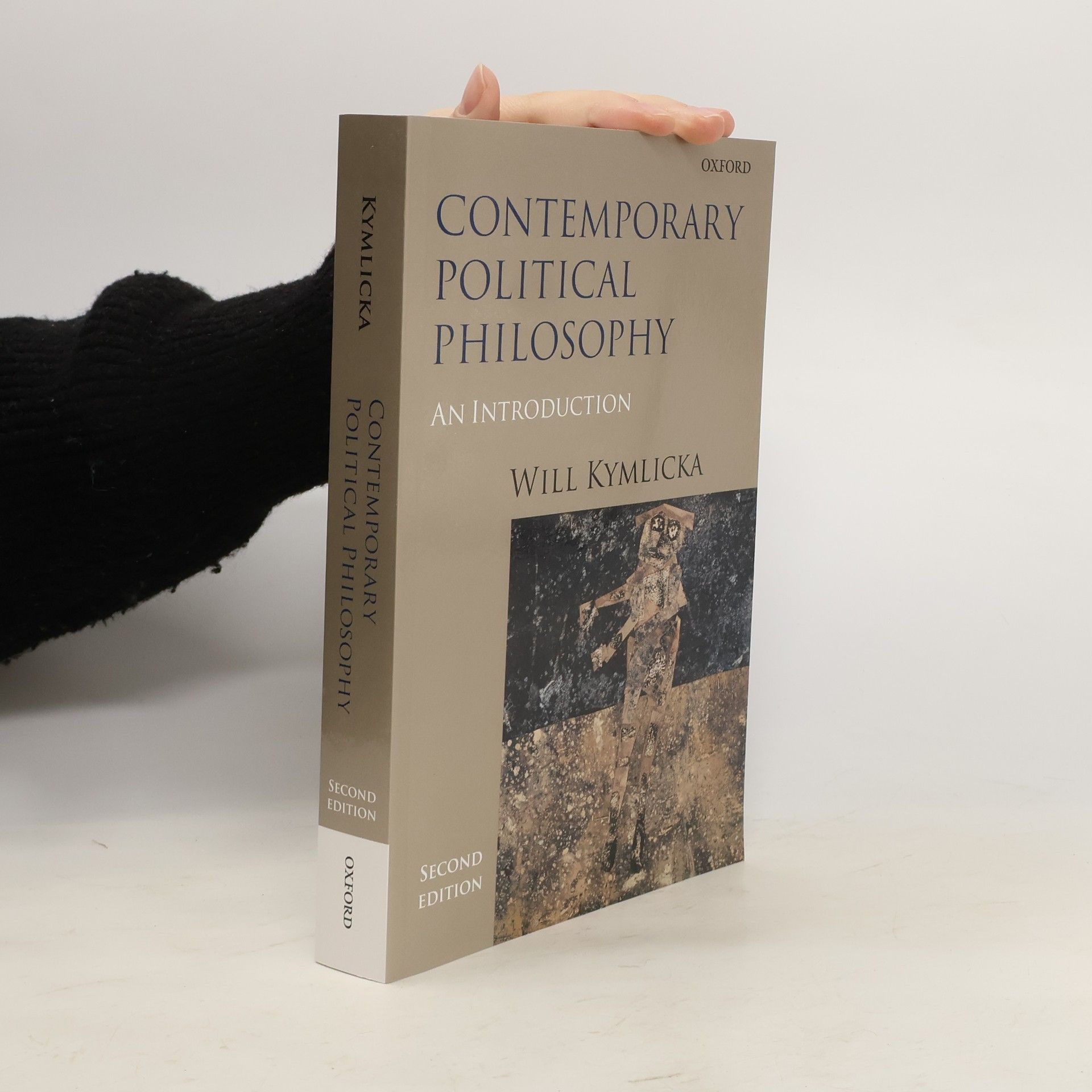Will Kymlicka Bücher
Will Kymlicka ist ein führender Theoretiker der politischen Philosophie, der sich mit Themen wie Liberalismus, Gemeinschaft und Kultur beschäftigt. Seine Arbeit befasst sich mit den komplexen Beziehungen zwischen Nationalstaat, Multikulturalismus und Minderheitenrechten. Kymlicka konzentriert sich darauf, wie individuelle Freiheiten in pluralistischen Gesellschaften mit kollektiven Rechten und Identitäten in Einklang gebracht werden können. Seine einflussreichen Schriften zielen darauf ab, neue Perspektiven auf ethnische Beziehungen, Nationalismus und Fragen der Staatsbürgerschaft in einer globalisierten Welt zu bieten.






Eine grundlegende und umfassende Einführung in die modernen Strömungen der politischen Philosophie: Utilitarismus, Liberalismus, Libertarismus, Marxismus, Kommunitarismus und Feminismus.
Multikulturalismus und Demokratie. Über Minderheiten in Staaten und Nationen
- 109 Seiten
- 4 Lesestunden
Does the increasing politicization of ethnic and racial diversity of Western societies threaten to undermine the welfare state? This volume is the first systematic attempt to explore this linkage between "the politics of recognition" and "the politics of redistribution".
Multicultural Odysseys
- 374 Seiten
- 14 Lesestunden
Using an innovative blend of political theory, international law, and studies on the sociological and geo-political foundations of minority rights, this landmark publication will set the debate on the likely future of the international politics of diversity.
This new edition of Will Kymlicka's best selling critical introduction to contemporary political theory has been fully revised to include many of the most significant developments in Anglo-American political philosophy in the last 11 years, particularly the new debates over issues of democratic citizenship and cultural pluralism. The book now includes two new chapters on citizenship theory and multiculturalism, in addition to updated chapters on utilitarianism, liberal egalitarianism, libertarianism, socialism, communitarianism, and feminism. The many thinkers discussed include G. A. Cohen, Ronald Dworkin, William Galston, Carol Gilligan, R. M. Hare, Chandran Kukathas, Catherine Mackinnon, David Miller, Philippe Van Parijs, Susan Okin, Robert Nozick, John Rawls, John Roemer, Michael Sandel, Charles Taylor, Michael Walzer, and Iris Young. Extended guides to further reading have been added at the end of each chapter, listing the most important books and articles on each school ofthought, as well as relevant journals and websites. Covering some of the most advanced contemporary thinking, Will Kymlicka writes in an engaging, accessible, and non-technical way to ensure the book is suitable for students approaching these difficult concepts for the first time. This second edition promises to build on the original edition's success as a key text in the teaching of modern political theory.
Finding Our Way (Rethinking Ethnocultural Relations in Canada)
- 232 Seiten
- 9 Lesestunden
The book provides a nuanced perspective on ethnocultural politics in Canada, countering the notion of chaos with insights gained from past experiences. It highlights successful strategies for integrating immigrants and addressing Quebecois nationalism, emphasizing that these lessons are crucial for addressing ongoing challenges. By showcasing a more balanced view, it encourages readers to reconsider the complexities of multiculturalism and the potential for effective accommodation of diverse groups.
This study presents a liberal view about the nature and value of community and culture, and links it to more familiar views on individual rights and state neutrality. The author argues that liberalism when properly applied permits the legal constraints necessary to protect ethnic minorities.
La citoyenneté multiculturelle
- 352 Seiten
- 13 Lesestunden
Le multiculturalisme est un phénomène incontournable des sociétés contemporaines. Comment le traiter? Pour W. Kymlicka, la citoyenneté multiculturelle est à la fois possible et surtout compatible avec le respect des principes qui gouvernent les démocraties libérales : la liberté individuelle, la justice sociale, l'unité nationale
